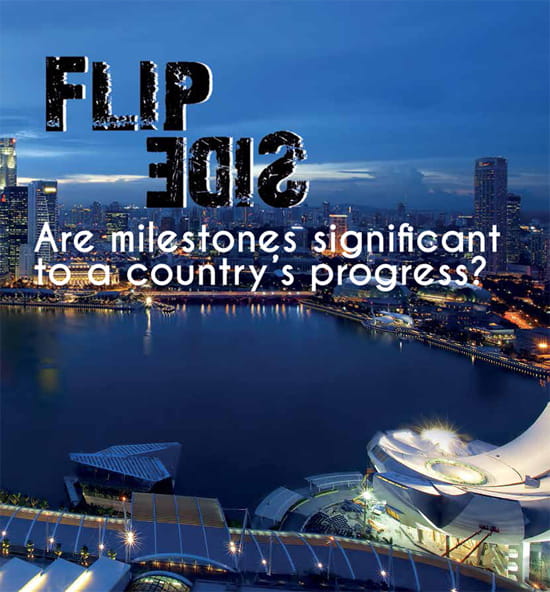
“Milestones indicate how far along a country has progressed in comparison to other countries after considering geopolitical factors. Marking milestones (either in a big way or a small mention) could inculcate a sense of pride in its citizens and residents.”
— Jacquelyn Sassoon
“They are, but what’s more important than milestones is a collective shared vision and direction.”
— Shannon Mark
“They instil a sense of pride in a country, in a sense, where a country that has managed to overcome difficulties, will emerge tougher as a result.”
— Kenneth Yeo
“Milestones serve as gentle reminders of where we came from and where we are now. Without them, there are few indicators of growth except maybe those related to economy and population size.”
— Gary Ng
“A country’s progress can be pegged to many different areas but milestones give us specific time frames that we can say, we’ve moved on from.”
— Muhammad Saifuddin Ismail
“Milestones may not be significant in the long-run, especially if progress can be reversed by say the effects of population explosions or government policies.”
— James Lee
“I think that milestones only carry the weight of the nostalgia and reminiscence of a time gone by. Realistically, it may not be a significant way of measuring progress.”
— Esther Au-yong
“Progress is generally something that is perceived by a country’s people or government. That’s when the country has either come up economically or raised its standard of living. Milestones may not be that important.”
— Abigail Cheng
“In Singapore’s case, its independence in 1965 was probably the biggest milestone to date and is often used as a reference point as the start of ‘modern Singapore’.”
— George Ong
“Some countries like Singapore may look at milestones as indicators of progress, but older societies may look at other things such as cultural development and heritage.”
— Carina Chen
